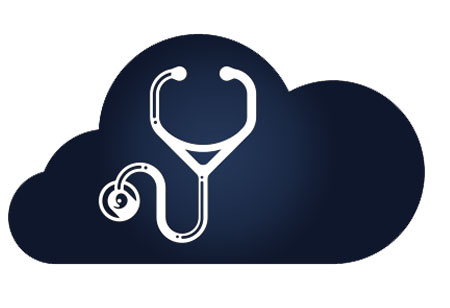THANK YOU FOR SUBSCRIBING
Pros and Cons of Implementing Cloud in Healthcare Industry
Healthcare sector is reaping huge benefits from cloud computing, and therefore they are migrating their operations and data to the cloud.

By
Apac CIOOutlook | Thursday, January 01, 1970
Stay ahead of the industry with exclusive feature stories on the top companies, expert insights and the latest news delivered straight to your inbox. Subscribe today.
Healthcare sector is reaping huge benefits from cloud computing, and therefore they are migrating their operations and data to the cloud. A move to the cloud can be proved beneficial for the healthcare sector, provided the migration and every technical safeguard possible are ensured. With this increasing awareness of the possibilities offered by the cloud, there has been a corresponding rise in the range of applications that open these possibilities to masses But this process will include advantages and disadvantages, so let’s have a look at what cloud computing has to offer to healthcare companies.
Advantages
1. Enhancing businesses: Migrating services and data to the cloud can be a cost-saving process for an organization. The efficiency and productivity are more than the pay for the cost of undertaking a planned migration; hence cloud technology can add value to any business. As this innovation offers long-term cost-effectiveness, therefore companies are readily investing in it.
2. Valuable services to patients: After migrating to the cloud, healthcare IT can help enterprises deliver more valuable and affordable services to its patients. Cloud services also make it convenient for businesses to store, transfer, and analyze the enormous amount of incredible sensitive personal health information (PHI) following HIPAA compliance.
3. HIPAA compliance: HIPAA is a piece of legislation that governs the way patients’ personal information is stored and handle and also takes care that a patient’s anonymity and privacy is maintained and respected. However, HIPAA violations can incur hefty fines on businesses that breach their healthcare obligations.
4. Interoperability: Within the healthcare organizations, the ability to securely transfer PHI between internal departments is essential in ensuring efficient operations. Moreover, consumers and the industry at large have expressed that they require a more connected healthcare industry, where the data can be easily exchanged amid the organizations. Here comes the cloud innovation which provides this convenience of letting different organizations collaborate for the sake of patients. Hence cloud services encourage business to adopt innovative processes, systems, and applications which facilitate and support the necessity for healthcare companies.
Disadvantages
The major drawback that can be faced by the enterprises is that- if the migration isn’t managed correctly, the enterprises can run into all kinds of trouble. But if one consults with relevant expertise and make sure the movement is properly managed, it should be a fruitful endeavor.
Cloud service providers have to take care of the number of clients as the latter can come up against technical outages which can lead to business processes being temporarily suspended. Moreover, if there is no internet connection, there won’t be any access to application, server or data from the cloud.





